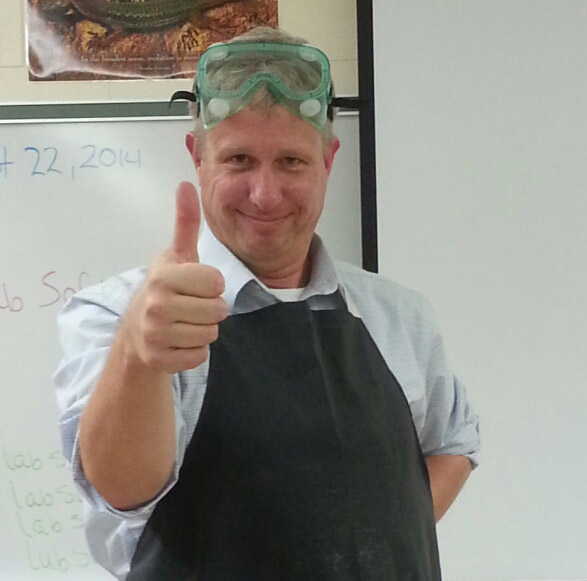We asked applicants for the NCSE Grand Canyon Teacher Scholarship to explain, in 500 words, how they’ve addressed challenges to the teaching of evolution, climate change, and related issues. Here is part of scholarship winner Brandon Haught’s explanation of how his experience fighting creationism in the Florida board of education differs from the challenge of addressing creationist students’ objections. Haught and Crystal Davis will receive an all-expenses-paid trip down the Grand Canyon, thanks to generous donations from NCSE supporters.
 I am still early in my teaching career. This is only my second year teaching high school science. In my first year I taught biology, which is a course required for all students to graduate here in Florida. A chunk of that course involves evolution. I thought I was ready for it. Before becoming a teacher, I advocated on behalf of science education via my participation in the stateside organization Florida Citizens for Science. We fought hard during several highly publicized battles over the teaching of evolution in our state’s public schools. Fortunately, we were successful in beating back the anti-evolution groups. I thought this experience would prepare me for teaching teenagers about evolution. It didn’t.
I am still early in my teaching career. This is only my second year teaching high school science. In my first year I taught biology, which is a course required for all students to graduate here in Florida. A chunk of that course involves evolution. I thought I was ready for it. Before becoming a teacher, I advocated on behalf of science education via my participation in the stateside organization Florida Citizens for Science. We fought hard during several highly publicized battles over the teaching of evolution in our state’s public schools. Fortunately, we were successful in beating back the anti-evolution groups. I thought this experience would prepare me for teaching teenagers about evolution. It didn’t.
Students come into the classroom with already formed yet half-baked ideas about evolution. They’ve clearly heard about the concept before but not from the most reliable of sources. My job is made more difficult because students are not empty vessels. Their ideas are muddy and sometimes polluted. My first task is to find out what they already know, or think they already know, and then try to clean out the misconceptions. This is by far the most daunting job. Unsurprisingly, some come armed and ready with the old trope of “if we came from monkeys, why are there still monkeys” or other such ill-informed challenges. Sweeping students clean of such notions without being confrontational is tricky, especially for a brand new teacher. I’m not sure if I've been successful. Teens are a skeptical bunch when they have certainty, even if it’s false, planted firmly in their minds. The students in my first year didn’t debate me but some also didn’t seem entirely convinced.
Rafting the Grand Canyon with NCSE will help me hone those skills and brainstorm new approaches for confronting science denial in my classroom.
